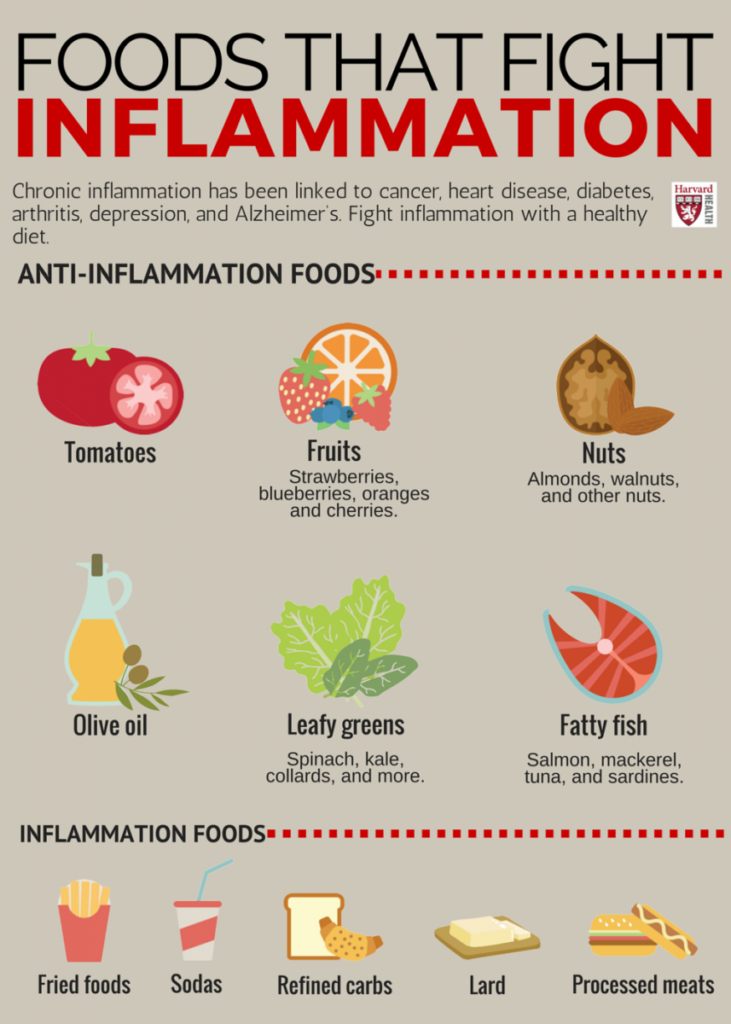In our journey towards the homesteading lifestyle, there’s a key element we often overlook – the impact of our diet on our overall well-being. At 2 Gals Homesteading, we’re always on the lookout for ways to live a healthier and more sustainable life. Today, we’re diving into the world of “Anti-Inflammatory Foods” – a powerful tool in your arsenal for promoting good health.
Unlocking the Potential of Anti-Inflammatory Foods
When it comes to improving our health, preventing chronic diseases, and feeling our best, the role of inflammation cannot be underestimated. Chronic inflammation is at the root of many health issues, from heart disease to cancer, and even Alzheimer’s disease. The good news is that you can take control of your health by making smart choices in your diet.
Anti-inflammatory foods

- Fatty fish: Salmon, mackerel, sardines, herring, and tuna are rich in omega-3 fatty acids, which have potent anti-inflammatory properties. www.healthline.com
- Fruits and vegetables: Berries, leafy greens, cruciferous vegetables (such as broccoli, cauliflower, and Brussels sprouts), and tomatoes are all good sources of antioxidants and phytonutrients that can help reduce inflammation. www.health.harvard.edu
- Nuts and seeds: Almonds, walnuts, chia seeds, and flaxseeds are all good sources of fiber, healthy fats, and antioxidants that can help reduce inflammation. www.runnersworld.com
- Whole grains: Quinoa, brown rice, oats, and barley are all good sources of fiber and other nutrients that can help reduce inflammation. www.sharecare.com
- Beans and lentils: These legumes are good sources of fiber, protein, and antioxidants that can help reduce inflammation. foodandmooddietitian.com
- Olive oil: Extra-virgin olive oil is a good source of oleocanthal, a compound that has anti-inflammatory properties. www.verywellhealth.com
- Turmeric: Turmeric contains curcumin, a compound that has powerful anti-inflammatory properties. www.yogabycandace.com
- Ginger: Ginger contains gingerol, a compound that has anti-inflammatory properties. www.rittenhousevillages.com
- Garlic: Garlic contains allicin, a compound that has anti-inflammatory properties. www.vcuhealth.org
Inflammatory foods
- Processed foods: Processed foods are often high in unhealthy fats, added sugars, and sodium, all of which can contribute to inflammation. www.healthline.com
- Red meat: Red meat, including lard, is a good source of protein, but it can also be a source of inflammatory compounds. www.frontiersin.org
- Sugary drinks: Sugary drinks, such as soda, juice, and sports drinks, are high in added sugars, which can contribute to inflammation. www.mdpi.com
- Refined carbohydrates: Refined carbohydrates, such as white bread, white rice, and pasta, are quickly digested and can cause spikes in blood sugar, which can contribute to inflammation. www.neckandspinekolkata.com
- Unhealthy fats: Unhealthy fats, such as trans fats and saturated fats, can contribute to inflammation. www.verywellhealth.com
Benefits of reducing inflammatory foods
Reducing inflammatory foods can help to:
- Improve gut health
- Reduce inflammation throughout the body
- Reduce the risk of chronic diseases, such as heart disease, cancer, and Alzheimer’s disease
- Improve mood and energy levels
- Promote weight loss
How to add more anti-inflammatory foods to your diet
- Make small changes to your diet by adding more anti-inflammatory foods to your meals and snacks.
- Choose whole, unprocessed foods over processed foods.
- Cook more meals at home so that you can control the ingredients.
- Read food labels carefully and avoid foods that contain unhealthy fats, added sugars, and sodium.
- Make gradual changes to your diet so that you can stick with them over time.
Lard. Really?
Jamie and I love cooking with lard… so we did some more research. Lard, which is made from rendered pork fat, is a saturated fat. Saturated fats have been associated with the potential to promote inflammation when consumed in excess. However, it’s essential to understand that inflammation is a complex process influenced by various factors, including overall diet, genetics, and lifestyle. Here’s a more detailed look at lard and its potential impact on inflammation:
- Saturated Fats and Inflammation: Some studies have suggested that diets high in saturated fats can contribute to chronic inflammation, which is associated with various health conditions, including heart disease and certain types of cancer.
- The Role of Moderation: Consuming lard or other sources of saturated fat in moderation is less likely to lead to inflammation. It’s when saturated fats are a significant part of one’s diet that concerns arise. A diet high in saturated fats often means that it’s also low in anti-inflammatory foods like fruits, vegetables, and fatty fish.
- Dietary Context: In the context of a balanced and diverse diet, the impact of lard on inflammation may be less significant. A diet that includes a variety of foods, including those rich in antioxidants and anti-inflammatory compounds, can help mitigate any potential negative effects of lard.
- Individual Variation: It’s important to note that the impact of dietary fats on inflammation can vary among individuals. Some people may be more sensitive to the effects of saturated fats, while others may not experience the same level of inflammation from consuming them.
- Cooking Methods: How lard is used can also influence its impact. Frying or deep-frying foods in lard can result in the production of pro-inflammatory compounds due to high-temperature cooking. Using lard in moderation and for lower-temperature cooking methods may be a more health-conscious approach.
Lard, like other saturated fats, has the potential to contribute to inflammation if consumed excessively and as a significant portion of the diet. However, in moderation and as part of a balanced diet, it may have a more limited impact. To reduce the potential for inflammation and promote overall health, it’s essential to focus on a well-rounded diet that includes a variety of foods, especially those with anti-inflammatory properties, such as fruits, vegetables, whole grains, and fatty fish. If you have specific health concerns or dietary questions, consulting a healthcare professional or registered dietitian is advisable for personalized guidance.
If you are concerned about inflammation, talk to your doctor or a registered dietitian. They can help you create a personalized plan to reduce inflammation and improve your overall health.

